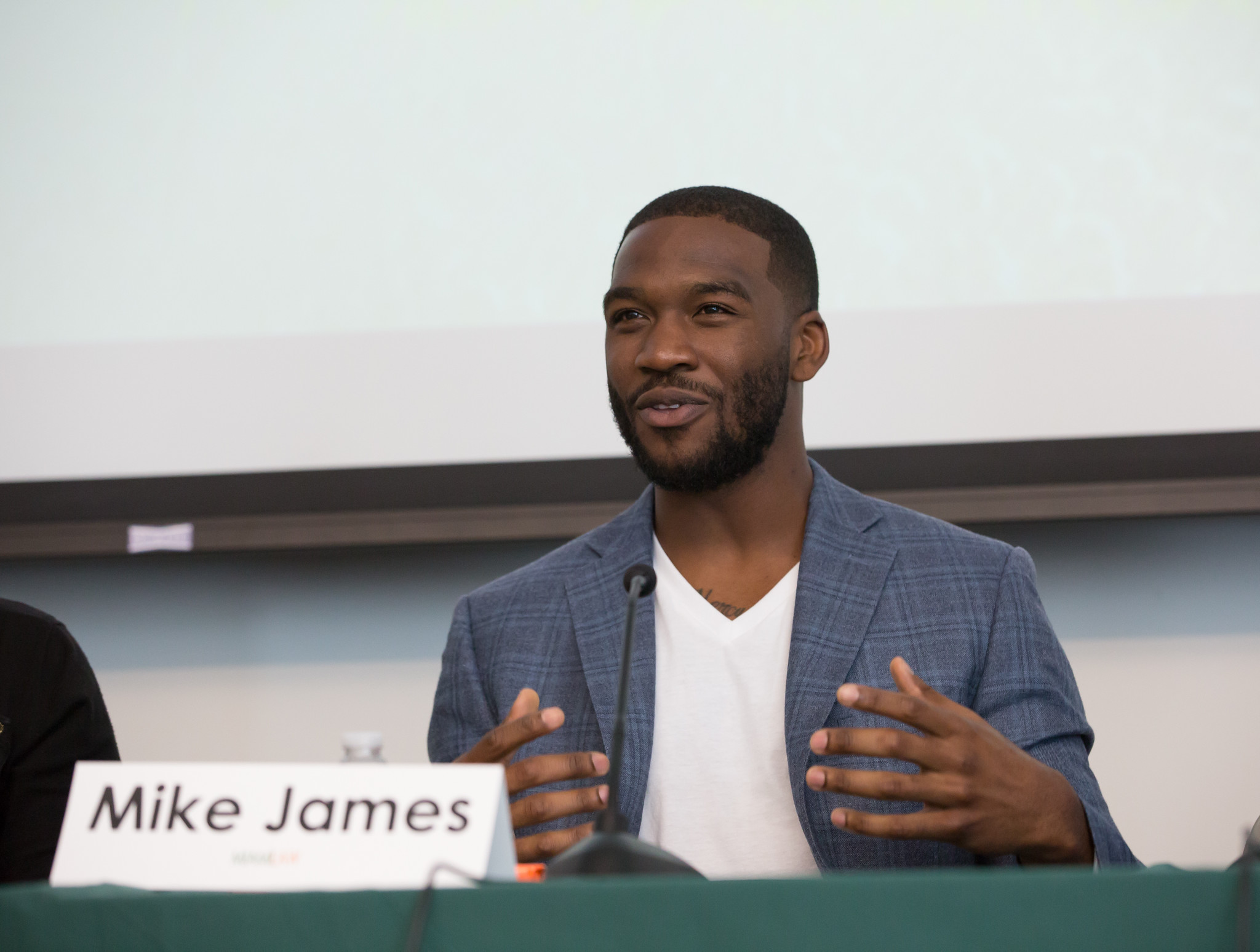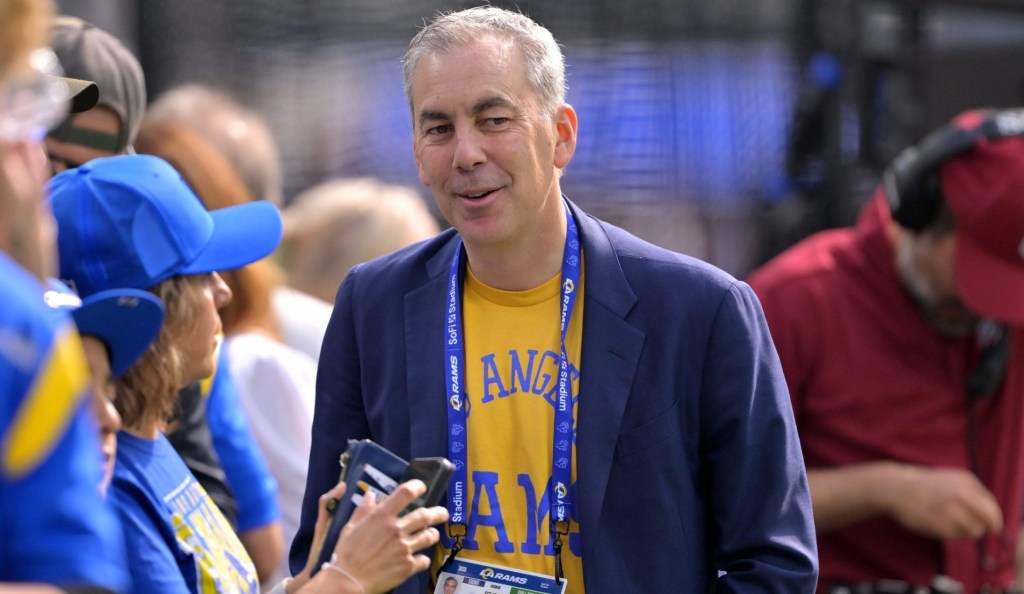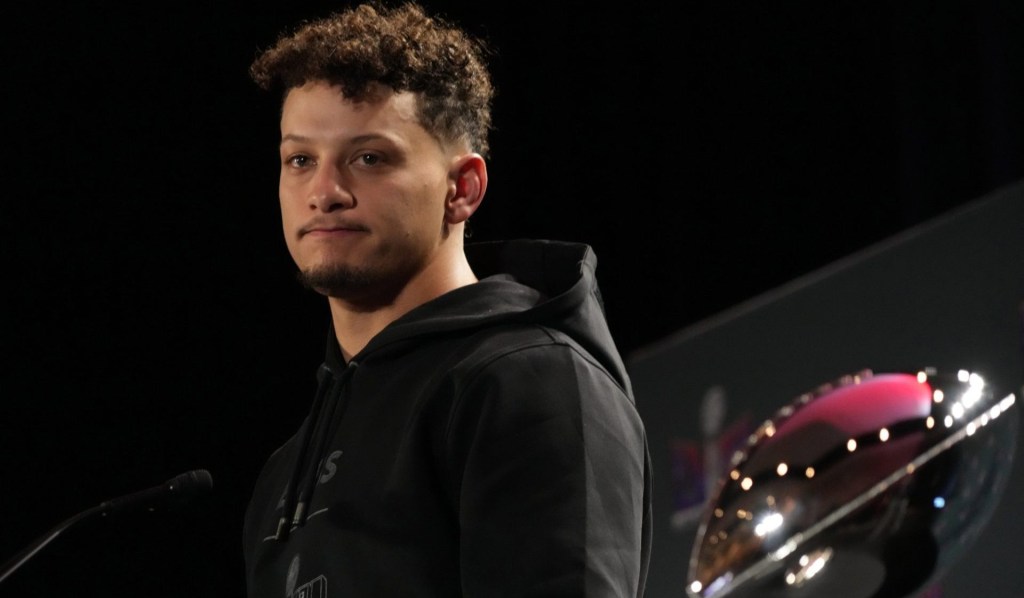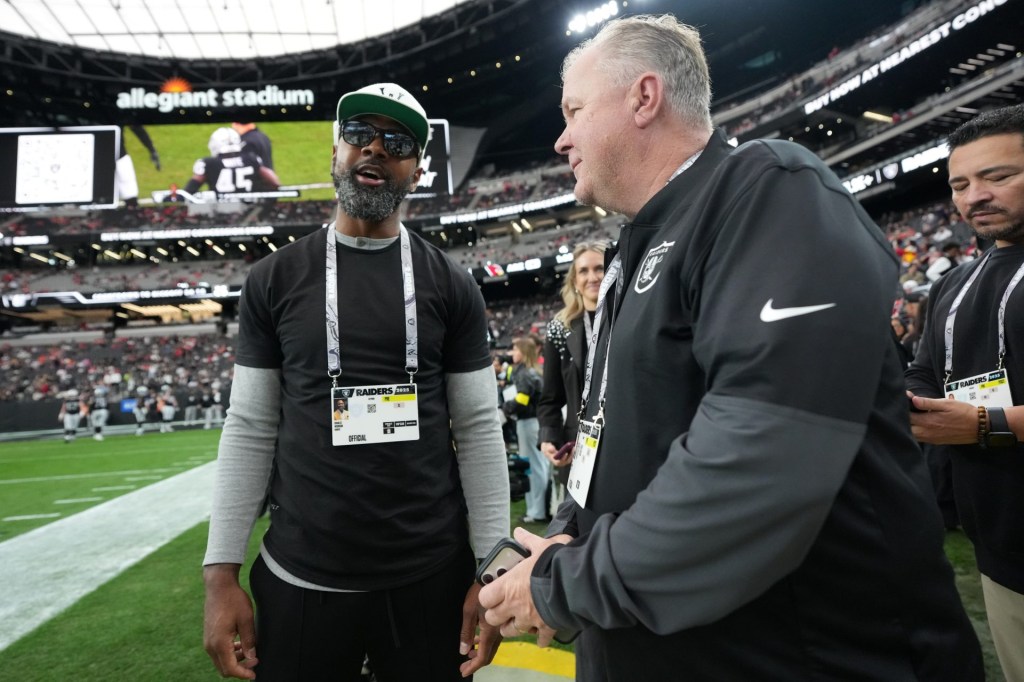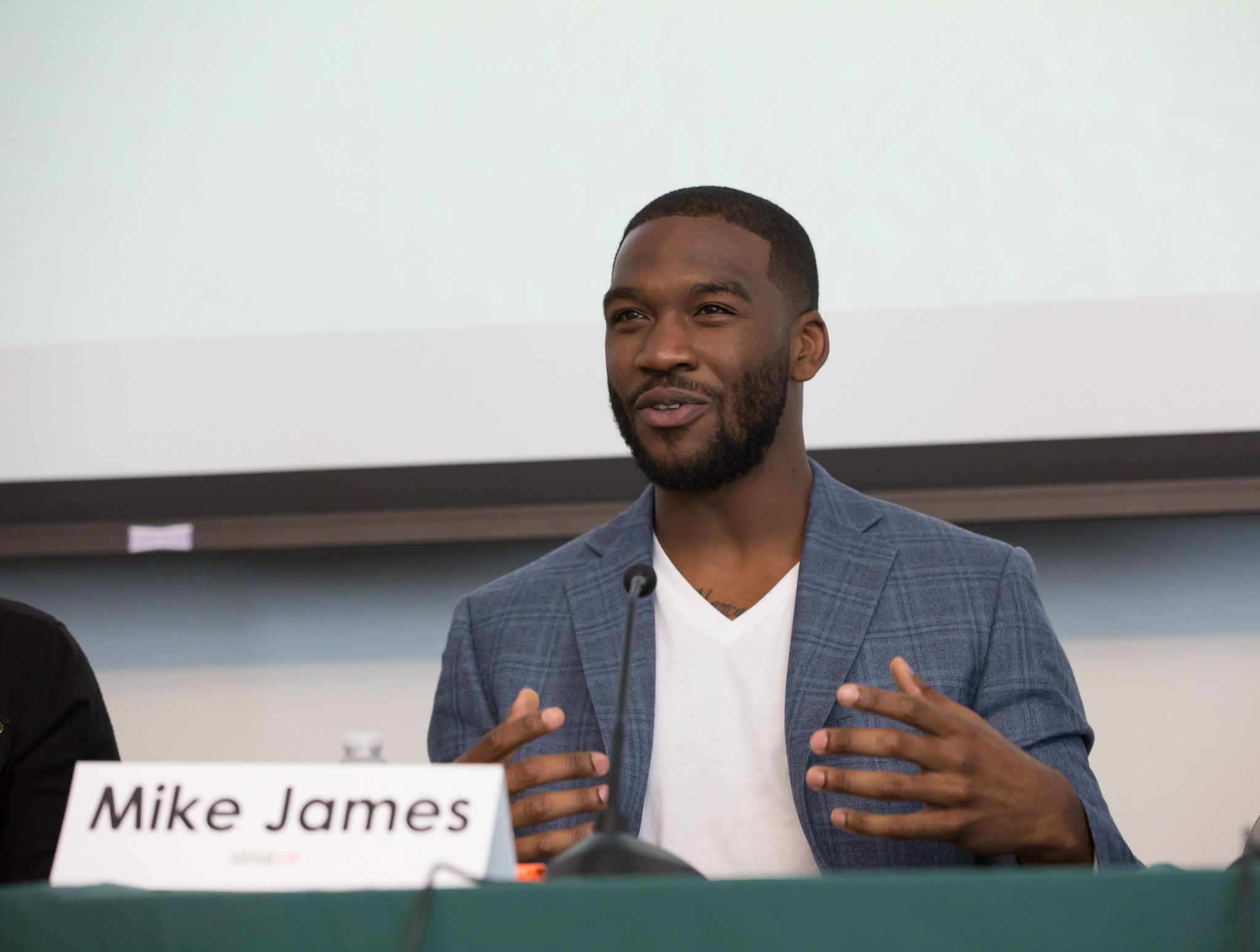
Mike James has become an outspoken advocate for cannabis use in the NFL (Photo via Jenny Abreu Photography)
The life of an NFL running back is a difficult one.
Arguably, the running back position is exposed to more contact than any other player on the football field. They can be on the receiving end of an impact — as a ball carrier, as a blocker and as a receiver — on nearly every offensive down. According to Statista, the average career length of an NFL running back is about two and a half seasons; meaning, the average NFL running back finishes their career having played a decade of organized tackle football. After years of football and thousands of carries accumulated (through games, scrimmages, practices and pick-up games), each hit taxes the body with a little more interest than the last.
As such, running backs are often injured due to the toll that the game has on their body. In the past, NFL teams have been sued for dealing with the injuries of players by offering opioid painkillers — medications which are habit forming and have the potential to become a drug of abuse.
NFL free agent running back Mike James, a product of the University of Miami and Haines City, Florida, is a case study in the aforementioned scenario. Entering the 2013 season, Doug Martin was slated to start at running back for the Tampa Bay Buccaneers. But, when Martin faced an injury mid-season, James’ workload increased substantially. Unfortunately, during the Buccaneers’ Monday Night Football appearance against the Dolphins, James was injured — his ankle was broken and his season concluded.
After his devastating ankle injury, he was prescribed opioids in order to deal with the pain from his leg. James grew dependent on the medication, which led to issues: “I developed a dependency on opioids.”
“I had never used drugs before. [After developing my dependency], my wife noticed a change in me and presented medical Marijuana as an option for me… Painkillers made me feel sick while medical Marijuana has helped my chronic pain and I was still able to function and live the life I wanted to live.”
Fortunately, James was able to ward off his struggles with opioids through his medicinal use of Cannabis. Because Cannabis was so helpful to James in his recovery from abuse and from his leg injury, he decided it was a safer pain management alternative that he would prefer to use during the NFL season. As such, he became the first active NFL player to file a Therapeutic Use Exemption (“TUE”) with the league in order to get permission to use medicinal Cannabis.
The NFL denied the request. Pursuant to the NFL’s “Policy and Program for Drugs of Abuse,” Marijuana is a “drug of abuse.” The NFL and NFLPA, when they negotiate the collective bargaining, stipulate to which supplements are to be considered “drugs of abuse.” As such, the league likely declined James’ TUE as a result of this policy.
“My ambition to get the [Therapeutic Use Exemption ] gave me a chance to make a difference. It was denied, and now I am trying to push the league to change their policies and get [medicinal Marijuana] recognized.”
Today, James is a staunch Cannabis activist; he believes that Cannabis has improved the quality of his life and he has become an advocate for the legalization of the plant.
“Currently, I am traveling around the country trying to learn as much as I can about medical Marijuana. I want to understand where medical Marijuana is going. I have been doing lobbying work — I traveled [recently] to Washington D.C. and met with a few members of the House of Representatives.”
Naturally a “power” back in the NFL, James channels the same fierce determination that has helped him run over NFL linebackers to make himself a powerful advocate.
“I want to be able to put myself in the best position possible to lobby effectively.”
He believes that other players could also benefit from Cannabis.
“I am currently working with the NFLPA to have a wellness seminar — so that we can all do what we can to fix this irresponsible medical culture [around the game of football]. We, as players, have a responsibility to make this game and to make sure it is the safest it can be. There is a 100% injury rate in this league and NFL players are four times more susceptible to opioid addiction. The goal is to help these guys, help ourselves and help our families.”
As yet another example of an athlete who uses their platform for the betterment of society, James’ courage to publicly share the battles he has faced and his willingness to fight for something that is not entirely accepted by mainstream society are to be commended. He is inspired by the work of fellow NFL free agents, Colin Kaepernick and Eric Reid: “They have forged a path which lets athletes know they have a voice to speak up. We are men and American citizens and we have the right to [do so]. Kap and Reid speaking up gave me the strength not just to talk about [the medical Marijuana] issue, but other things also.”
Want more content like this? Subscribe to our daily newsletter!
In addition to his advocacy work, James is getting healthy to be ready to start working out at an NFL level. He is still awaiting a decision from the NFL as to what his next steps are after the rejection of the Therapeutic Use Exemption by the league office and he understands the importance of his work and the long road ahead.
“This process is delicate and getting [medical Marijuana] recognized is way more important than another down of football. I want to make sure I go about this process the proper way before I even consider getting back onto the field.”
Regardless of whether the former Hurricane laces up for an NFL team ever again, his efforts to improve the lives of professional football players is something that will resonate through the league for a long time to come. In a long line of NFL Cannabis activists, from Ricky Williams to Eugene Monroe, Mike James is the next professional football player who is using their platform for the betterment of their peers.
